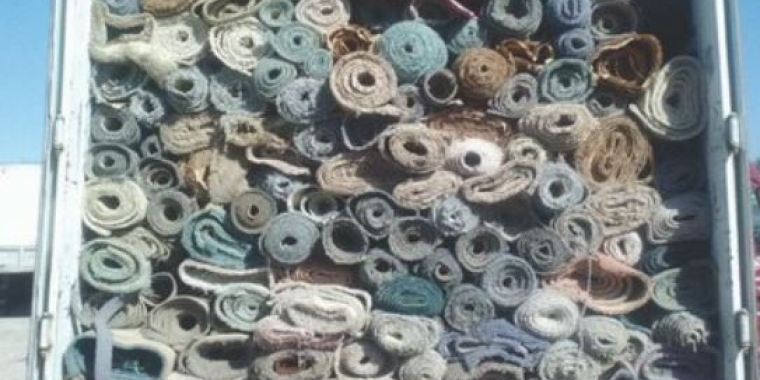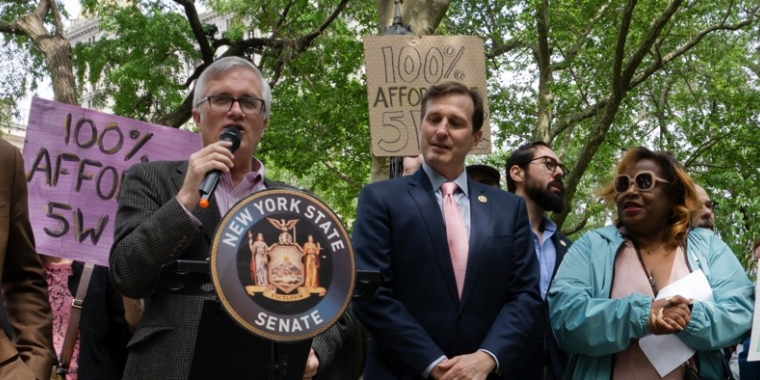
Gov. Hochul signs carpet, rug recycling bill

ALBANY — Those old rugs and carpets in your house should be a lot easier to get rid of now that Gov. Kathy Hochul has signed a law ordering carpetmakers to develop and enact plans for recycling. The bill, signed last week, was sponsored by New York City Democratic Sen. Brian Kavanagh and Long Island Democratic Assemblyman Steven Englebright. The bill requires carpet manufacturers to establish a program for the collection and recycling of discarded and unused carpeting.
Specifically, starting in January 2026, carpet sales in New York will be prohibited unless the producers are participating in an approved industry-wide plan for recycling or have established their own program for carpet collection, approved by the State Department of Environmental Conservation. According to the Natural Resources Defense Council, which had pushed for the measure, carpeting is one of the most difficult household items to dispose of.
“This new law provides another piece of the puzzle needed to handle waste more sustainably and take a bite out of the climate crisis,” NRDC lawyer Eric Goldstein said of the measure. More than 3.9 million tons of carpet and rugs are discarded annually in the U.S., according to the Product Stewardship Institute. These unwanted rugs and carpets are bulky and costly to collect. Most are made of synthetic, petroleum-based fibers such as nylon, polypropylene, and polyester.
Currently, almost all discarded carpets in New York are sent to landfills or incinerators.
The new legislation establishes carpet recycling performance goals that the industry is required to achieve over time. The first goal is for 30 percent of carpet recycling in five years, with at least 10 percent of the recovered materials being used as recycled content for new carpets. The final goal, to be achieved by the 15 -year mark, calls for 75% carpet recycling, with at least 40% of recovered materials being used as recycled content for new carpets.
The NRDC believes the most sustainable floor coverings are those made of natural products such as wool, jute or sisal. The bill had its critics, though. The Carpet and Rug Institute has opposed such mandated recycling measures in some instances, saying they create new “carpet bureaucracies” and hidden taxes on consumers since the cost of setting up recycling programs will presumably be passed along to carpet buyers. Carpetmakers have also noted that the bill could give a price advantage to products like laminated flooring, which unlike many carpets, is imported rather than made in the U.S.
California has had a carpet recycling program since 2010. New York is the second state to do so but lawmakers in other states are looking at similar actions. The call for mandated recycling for carpets is part of the Extended Product Responsibility movement which calls for manufacturers to be responsible for dealing with the disposal of products they produce after their useful life has ended.


